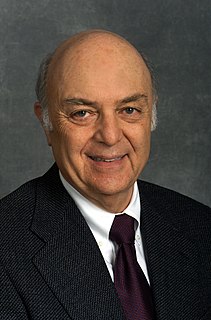A Quote by Philip K. Dick
Don't never participate in no bad scenes, he reminded himself; that was his motto in life.
Related Quotes
My friend devotes himself to his life, whenever he can find the spare time. His motto is: 'Don't just sit there: live!' So he's too busy to stand, to walk, to do anything, except to live. He even refused to kiss a girl, when invited, on the grounds that it was time again to be living. Schedules are sacred to him.
Kafka often describes himself as a bloodless figure: a human being who doesn't really participate in the life of his fellow human beings, someone who doesn't actually live in the true sense of the word, but who consists rather of words and literature. In my view, that is, however, only half true. In a roundabout way through literature, which presupposes empathy and exact observation, he immerses himself again in the life of society; in a certain sense he comes back to it.
At the bottom no one in life can help anyone else in life; this one experiences over and over in every conflict and every perplexity: that one is alone. That isn't as bad as it may first appear; and again it is the best thing in life that each should have everything in himself; his fate, his future, his whole expanse and world.
Trump's not showing up and trying to politely insert himself in political system and the way politicians do things. He's not trying to ingratiate himself. He doesn't care. He's elected to do specific things. His campaign, his agenda, his rallies, a very long list of specific things, and he reminded everybody, if you're thinking he's not gonna build a wall, if you're thinking that was just chatter, I'd change my mind if I were you.
And he began to see the truth, that Ged had neither lost nor won but, naming the shadow of his death with his own name, had made himself whole: a man who, knowing his whole true self, cannot be used or possessed by any power other than himself, and whose life therefore is lived for life's sake and never in the service of ruin, or pain, or hatred, or the dark.
What a wee little part of a person's life are his acts and his words! His real life is led in his head, and is known to none but himself. All day long, the mill of his brain is grinding, and his thoughts, not those of other things, are his history. These are his life, and they are not written. Everyday would make a whole book of 80,000 words -- 365 books a year. Biographies are but the clothes and buttons of the man -- the biography of the man himself cannot be written.
The man who is meek is not even sensitive about himself. He is not always watching himself and his own interests. He is not always on the defensive… To be truly meek means we no longer protect ourselves, because we see there is nothing worth defending… The man who is truly meek never pities himself, he is never sorry for himself. He never talks to himself and says, “You are having a hard time, how unkind these people are not to understand you.
My colleague Senator John Ensign of Nevada told me a story that epitomizes the selfishness of our culture: When I was a teenager, I had a sticker in my car with a picture of a bear scratching himself on the tree, and under it was the saying, 'If it feels good, do it!' That was the motto of the '60s and the '70s, and certainly it is the motto today. The image of the bear scratching himself highlights a view of human beings as animals, and that people should do what pleases them at the moment without a thought to the broader long-term consequences of their actions.





































